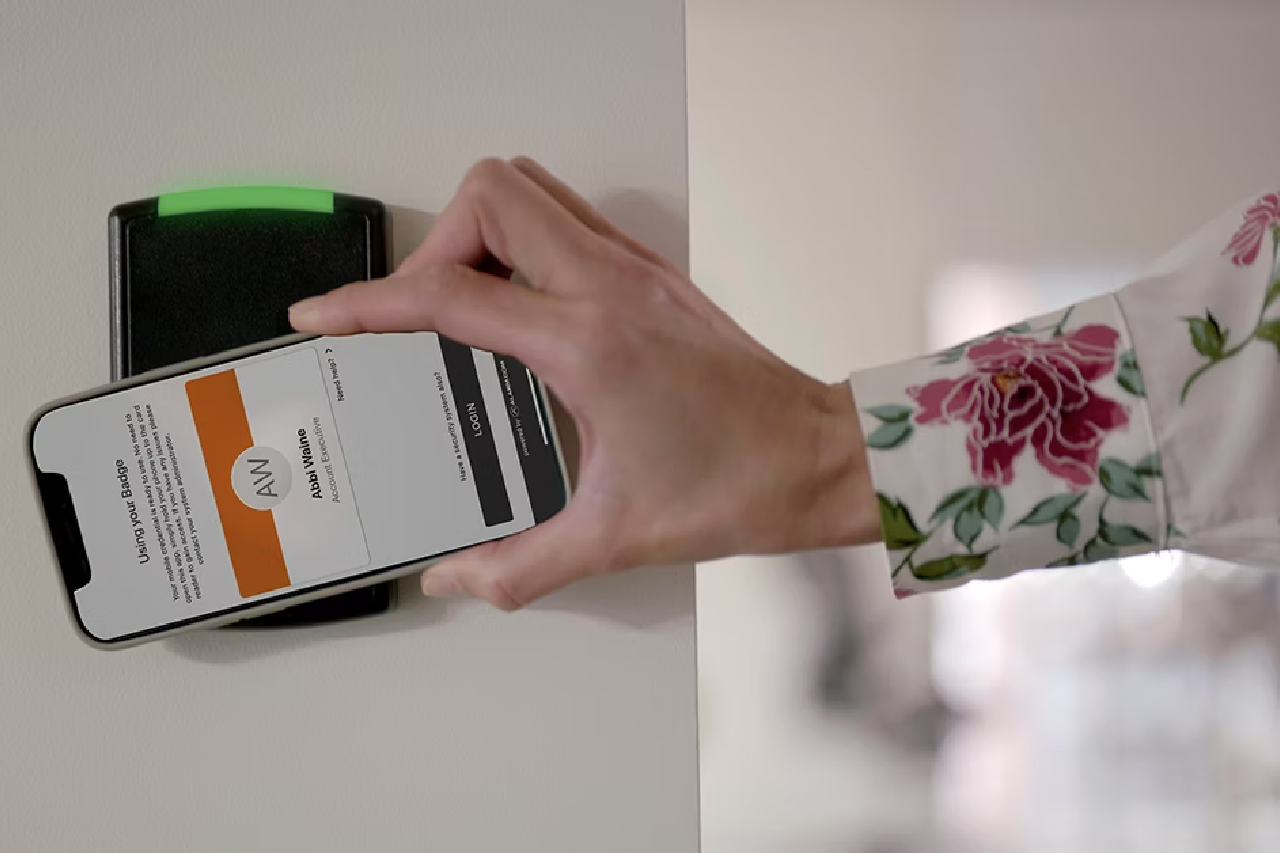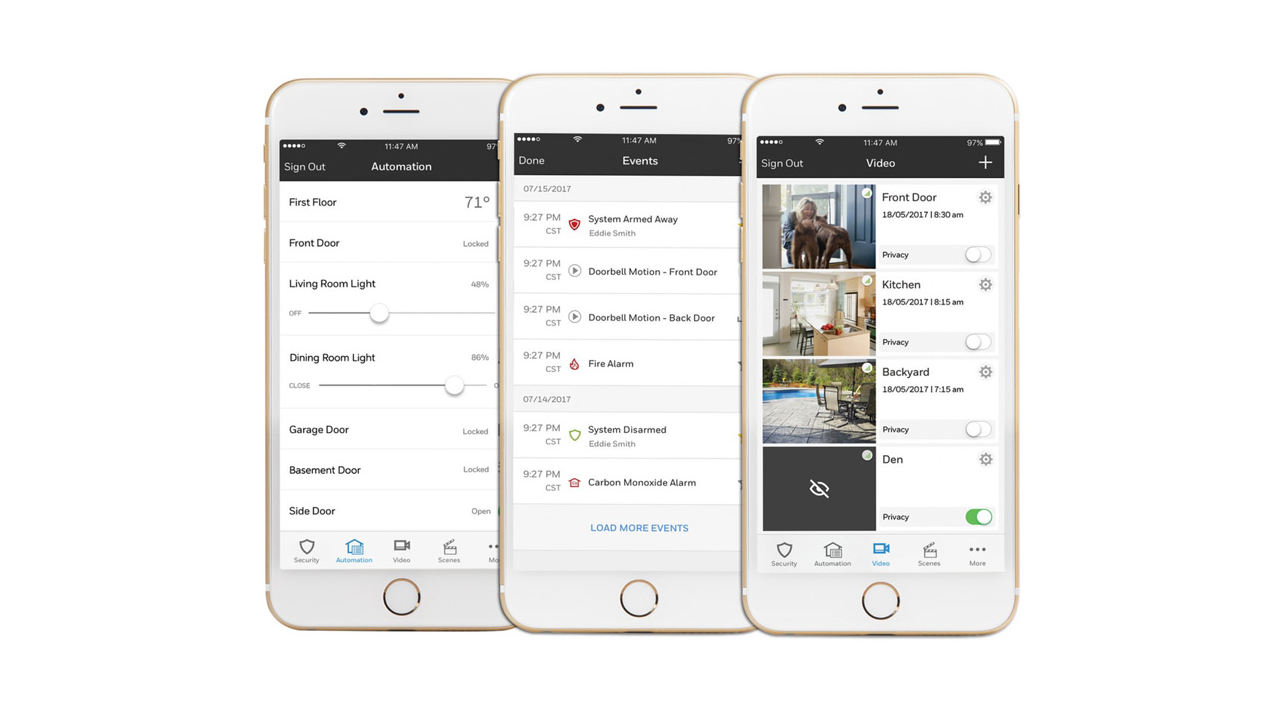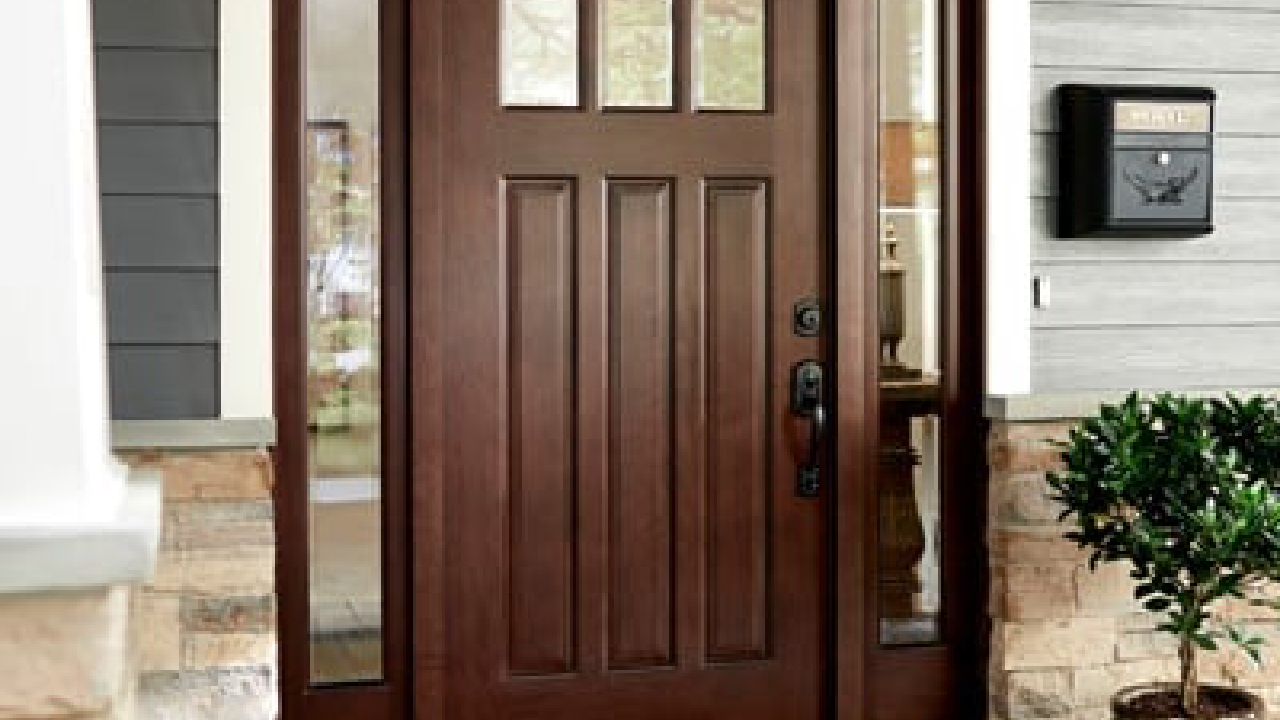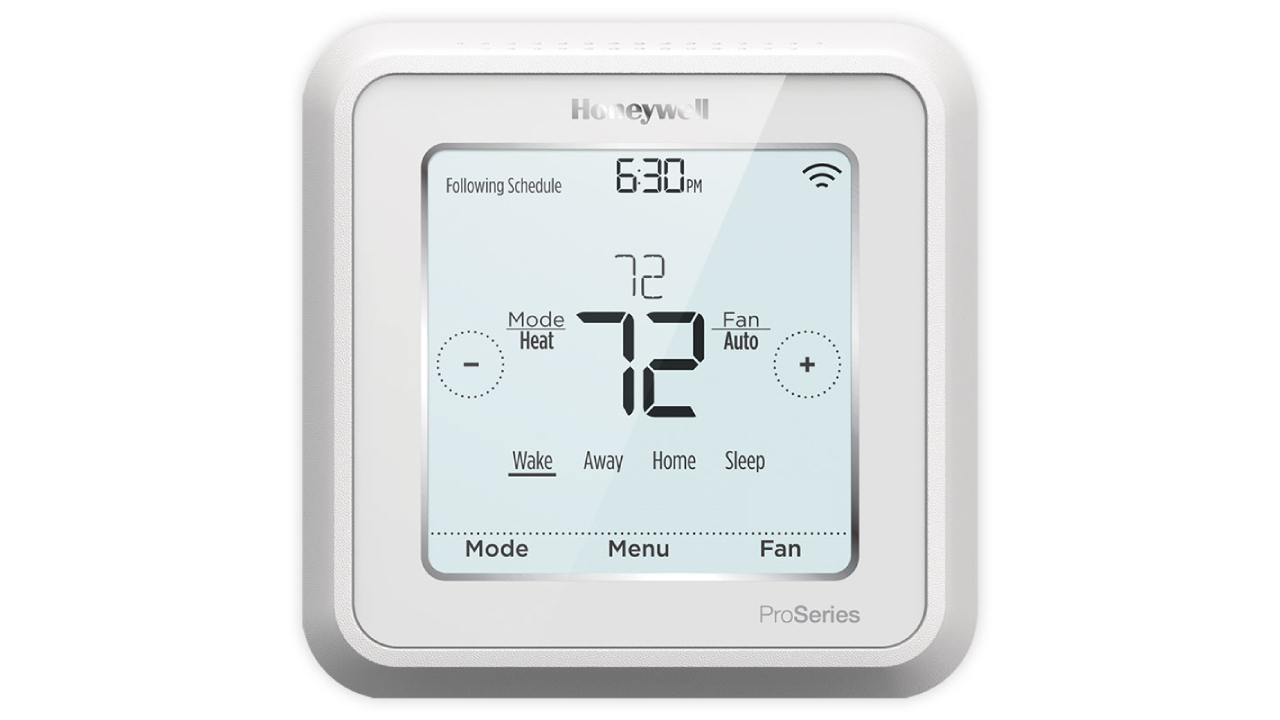Last Updated on March 4, 2022 by Alarm New England
In this day and age, technology provides powerful protection for an affordable price. If you are serious about keeping your home safe, a fence, locks, and cameras aren’t going to cut it. To truly protect your property, invest in a security system.
Security systems perform a whole host of critical functions, including:
- Protecting against theft
- Protecting against property damage or vandalism
- Monitoring the traffic in and around your home
- Guarding against intruders
- Calling for help in medical emergencies
- Deterring criminals from breaking in
- Keeping track of pets and young children
Two basic types of home security systems are on the market today: wireless and wired security systems.
Wired security systems use existing electric and telephone lines to connect each piece of the security system, making moving equipment and adding on additional elements a complex process.
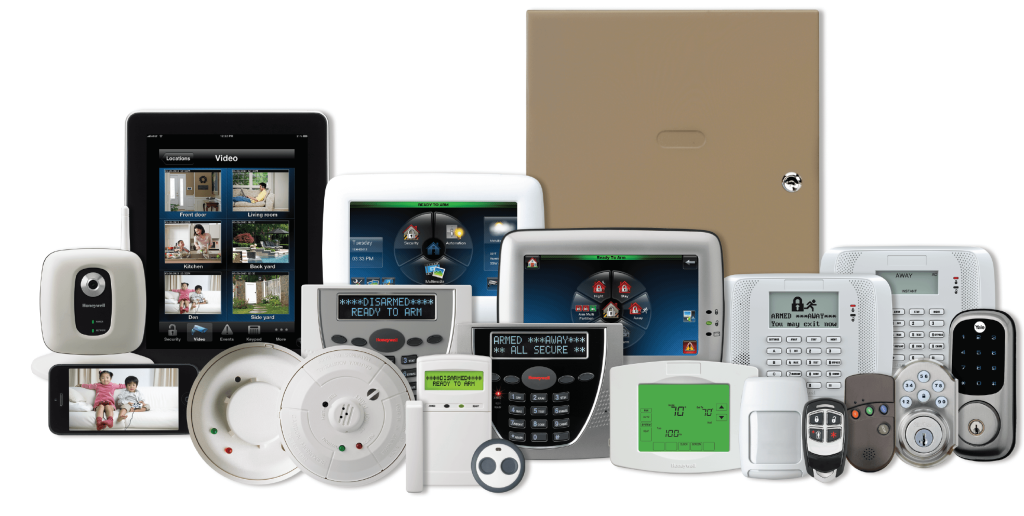
Wireless security systems are the next generation of security equipment: They offer comprehensive protection, lower installation costs, and easy upgrades.
Essentially, a wireless security system is comprised of alarms, sensors, cameras, and various detectors all connected to a main control panel via radio signals.
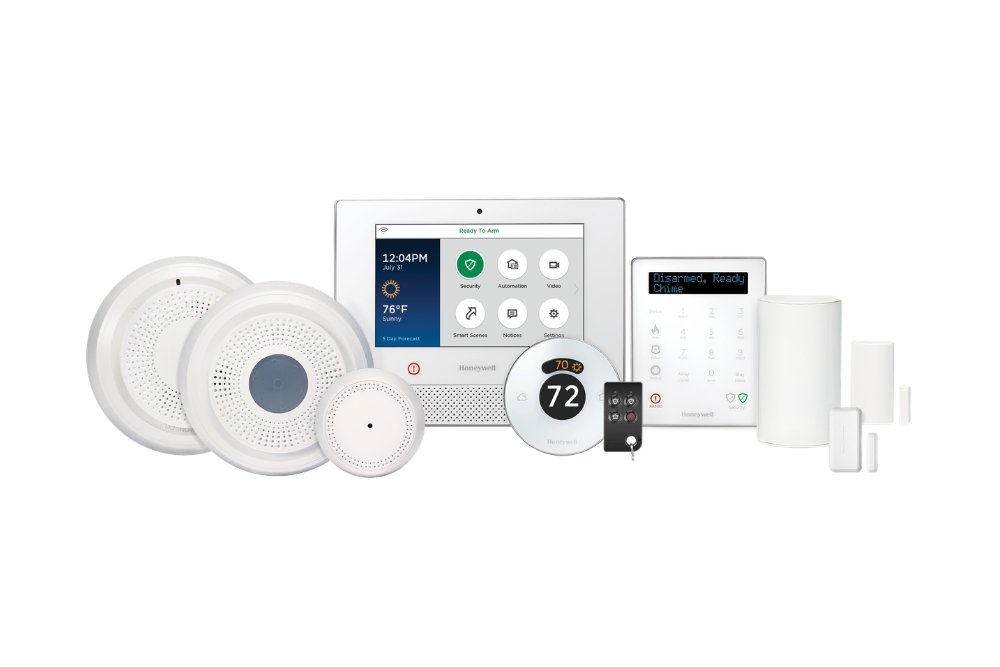
With the variety of security systems on the market, it can be a bit complicated to understand the differences between types of sensors and equipment, and it’s tough knowing whether to purchase a wireless or wired home security system.
To add to the confusion, many people have preconceived notions of which security methods are best based on anecdotal evidence or outdated information.
That’s why our focus is centered around the latest research and decades of security expertise.
In this guide on the difference between wired and wireless security systems, you’ll learn:
- How wireless security systems work
- The pros and cons of a wireless security system
- Common types of wireless security systems
- Typical costs of a wireless security system
- Essential features for your wireless security system
How Do Wireless Security Systems Work?
Wireless systems, including sensors, cameras, and alarms, work using radio frequency technology instead of wires.
There are countless models of wireless security systems, all of which work similarly with minor variations. When a wireless device picks up anomalous activity, it tells the alarm that something isn’t right, triggers the 85 dB siren, and the alarm monitoring service calls the police on your behalf.

Pros of Wireless Home Security Systems
While people often assume wireless security is less safe than to wired systems, industry veterans know that this is far from the truth.
Wireless home security systems offer several advantages over hardwired security systems.
Quick installation
Wireless systems can be installed within minutes. You don’t even have to be tech-savvy to do it. Because you don’t need to drill holes or tackle tricky wiring, self-installation is common and eliminates installation fees, saving you time and money.
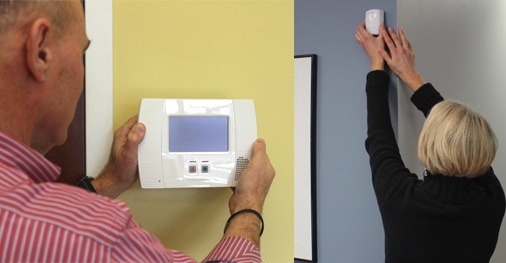
Portable and hassle-free
Packing your security system and moving from one home to another is a piece of cake with wireless security systems.
Because everything is simply stuck onto the wall and not hardwired, removing cameras, detectors, and other components of a wireless security system and putting them up in a new location takes minutes, not days. If you rent and move frequently, wireless systems are the way to go.

Remote smartphone access
Wireless systems can be monitored on the go with a smartphone, tablet, or computer. Your key fob offers another way to arm and disarm the system if you’d rather not use a smartphone app.
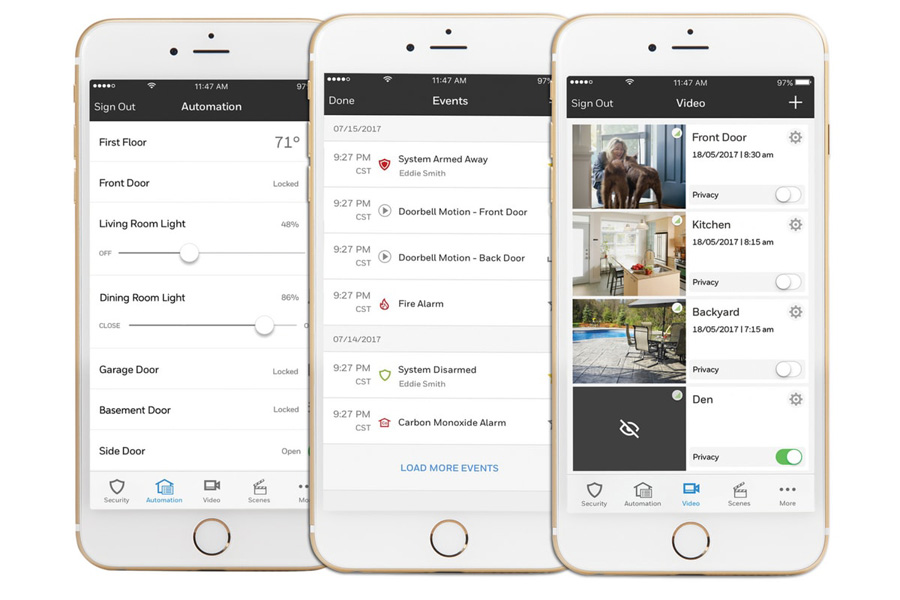
Battery Backup
Although wireless systems work with electricity, most models can switch to a backup battery if the power goes out. If there’s a power outage in your neighborhood, wired systems will lose power along with the rest of your house unless you have a backup generator.
If you have a wireless security system with a backup battery, you stay protected during a power loss event.
Cons of Wireless Home Security Systems
Cheap wireless systems can be hacked: Low-quality, outdated wireless systems do carry a risk that hackers can jam detector signals. You might remember the news surrounding SimpliSafe back in 2015 after a SimpliSafe customer figured out that their security system was vulnerable and publicized the fact via YouTube. However, you can avoid hacking if your system has strong data encryption.
Some wireless systems are vulnerable to structural or electromagnetic interference. Radio frequencies go around solid objects; they cannot go through them. So placing sensors in the correct locations is key if you want them to work correctly. Your alarm company should inform you exactly where each part should be installed so there is no confusion.
Another consideration with wireless home security systems is the limited range of sensors. Most radio frequencies are weak outside a range of 500 feet. This means that you have to structure your wireless system with this in mind, especially if your property is larger than 4,500 square feet.
For properties larger than 4,500 square feet, wireless sensors start becoming less reliable, so we highly recommend using a wired security system instead.
Types of Wireless Security Systems
Wireless security systems come in many shapes and forms. The main difference between them is the equipment. The simplest wireless home security systems have Wi-Fi alarm monitoring, sensors, and a control panel with a siren.
Devices that monitor potential household dangers, such as fires and carbon monoxide leaks, can be incorporated into a wireless alarm system.
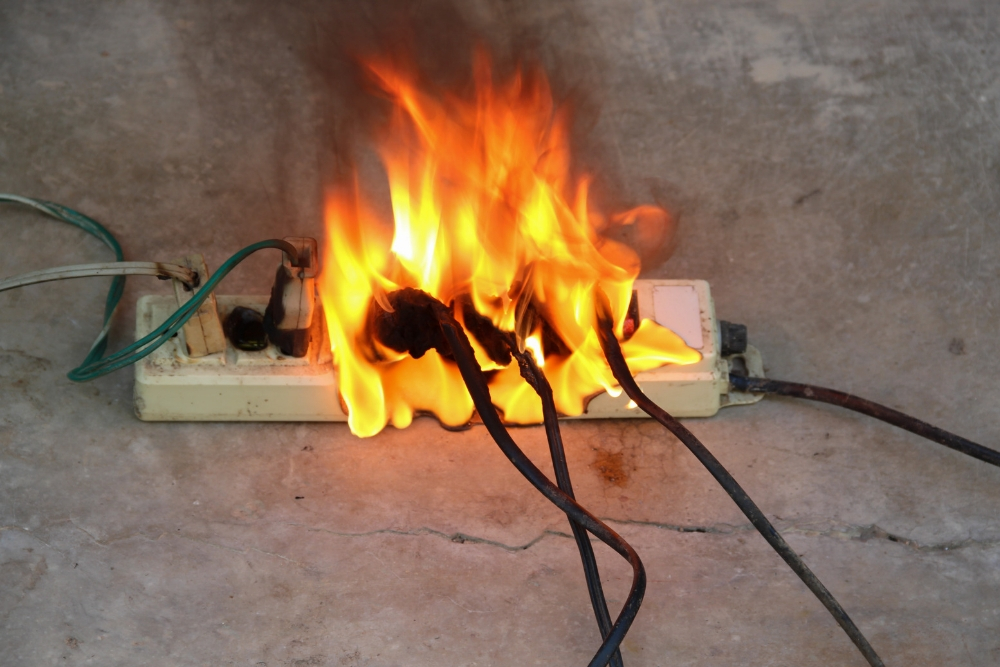
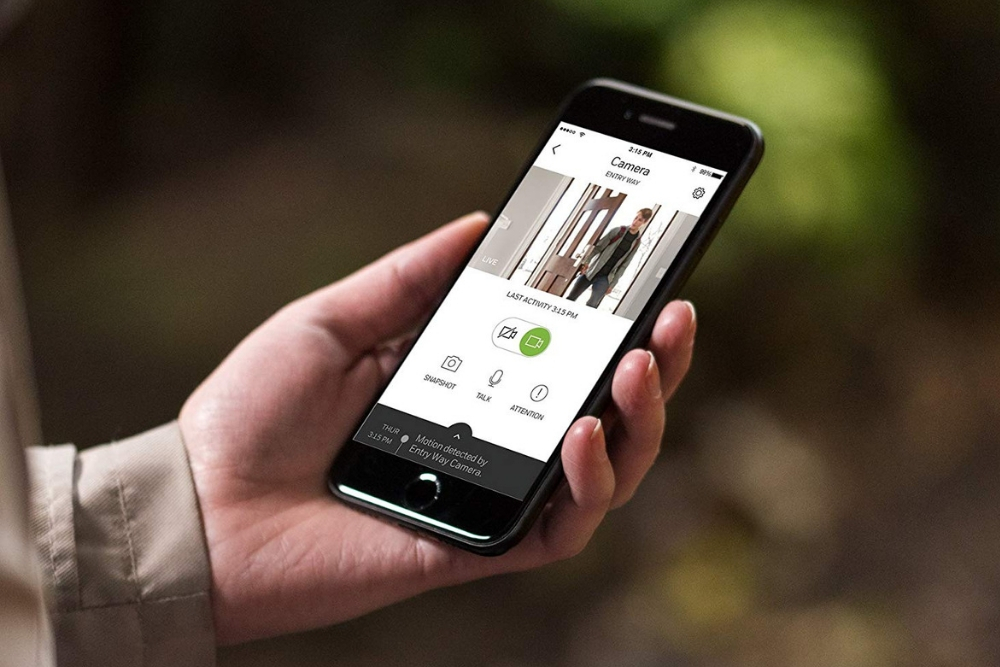
Top-tier systems offer additional valuable security features such as doorbell cameras, smart lighting, and keyless deadbolts. At this level, you can employ some of the most powerful hardware available to the consumer market to keep your home secure and simplify your life.
Another differentiating factor of wireless systems is the way the system communicates with third parties in an emergency. Wireless systems fall into two key categories: monitored and self-monitored systems.
Monitored systems
Monitored systems are overseen by an alarm monitoring company and enable security personnel to immediately contact the authorities in case of an emergency.

Monitored systems give you added peace of mind because trained emergency professionals are watching over your home around the clock.
Self-monitored systems
Self-monitored security systems are generally cheaper and have lower monthly costs, if any. The only drawback is that the job of calling local authorities falls to you in an emergency.
Self-monitored systems make use of loud alarms and bright lights to warn you of an intruder or breach. You can also receive alerts on your smartphone if your device is connected to your security system.
How Much Do Wireless Security Systems Cost?
Three factors will determine the cost of a wireless home security system:
- Installation
- Equipment
- Monthly monitoring
An average home security system can cost between $300 to $1,500, depending on the capabilities and features of the system. Monthly fees associated with 24/7 alarm monitoring wireless systems range from $0 to $75.
If you want to save money and have basic home improvement skills, we encourage you to try a self-installation process for your wireless security system.
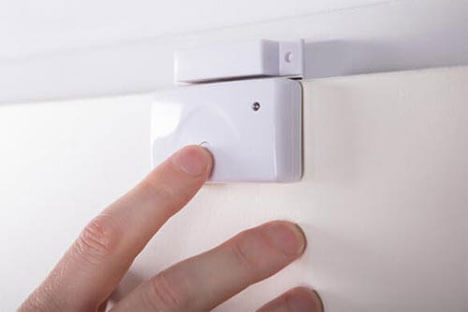
If that sounds overwhelming, get a professional alarm technician to install your system. They will also make sure that you know how to operate it properly and that everything functions as it should.
Professional installation ranges from $350 to $1,200 depending on how comprehensive you’d like your system to be. Many companies offer package deals that include installation with a primary wireless system if you also sign up for their monitoring services.
Features to Look for When Purchasing a Wireless Security System
The main reason you want a wireless security system is to make sure that your home is fully secured at all times. To ensure this, there are a few key questions you should ask when deciding which wireless security system is right for you:
What happens in a power outage?
The primary power source for most wireless security systems is electricity from the wiring within your home. However, you should make sure that your wireless home security system has a fail-safe in the event of unforeseen circumstances.
A good wireless system should have an alternative source of power, such as solar energy or batteries, in the event of a power outage, especially in an area like New England where snowstorms and falling trees are a common occurrence.
What is the range of its detectors?
Wireless systems use radio frequencies that are only effective up to a certain radius. If you have a large home, you will need a system that has a long reception range and can handle a more substantial amount of information and signals. Remember: A home larger than 4,500 square feet is generally better off using a wired system.
What additional features does it have?
Depending on your budget, you can opt for a system that includes smoke detectors, flood sensors, and carbon monoxide detectors. It all boils down to your personal needs.
Some wireless home systems are only for detecting burglars and trigger a siren to scare off the intruders. Others notify security companies of a break-in or emergency.
Does it integrate with your smart home technology?
Today, most homes make use of smart devices that can be controlled via smartphone. If you already own smart home technology, it is essential to know if your wireless security system can be incorporated into it so that you can control every device from as few apps as possible.
Integrating your wireless security system with your smart home takes your system beyond basic security and makes your home smarter and more efficient.
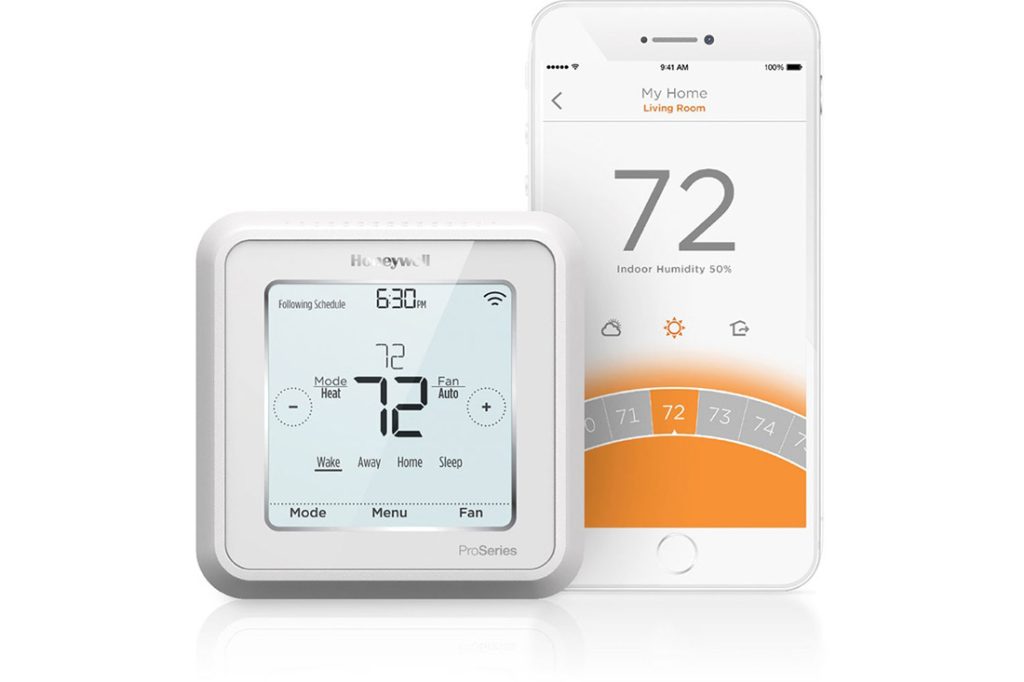
Smart home features for wireless security include HD video viewing via wireless security cameras, energy use tracking with programmable thermostats, and other kinds of residential access control like smart locks.
Having all of this functionality at your fingertips makes you realize how much easier life can be when there are fewer things to worry about.
Ask these questions when determining the right wireless security system for you. To find out if our local, family-owned company might be a right fit to install your home security system, contact us today at 617-221-8524 for a free quote.


